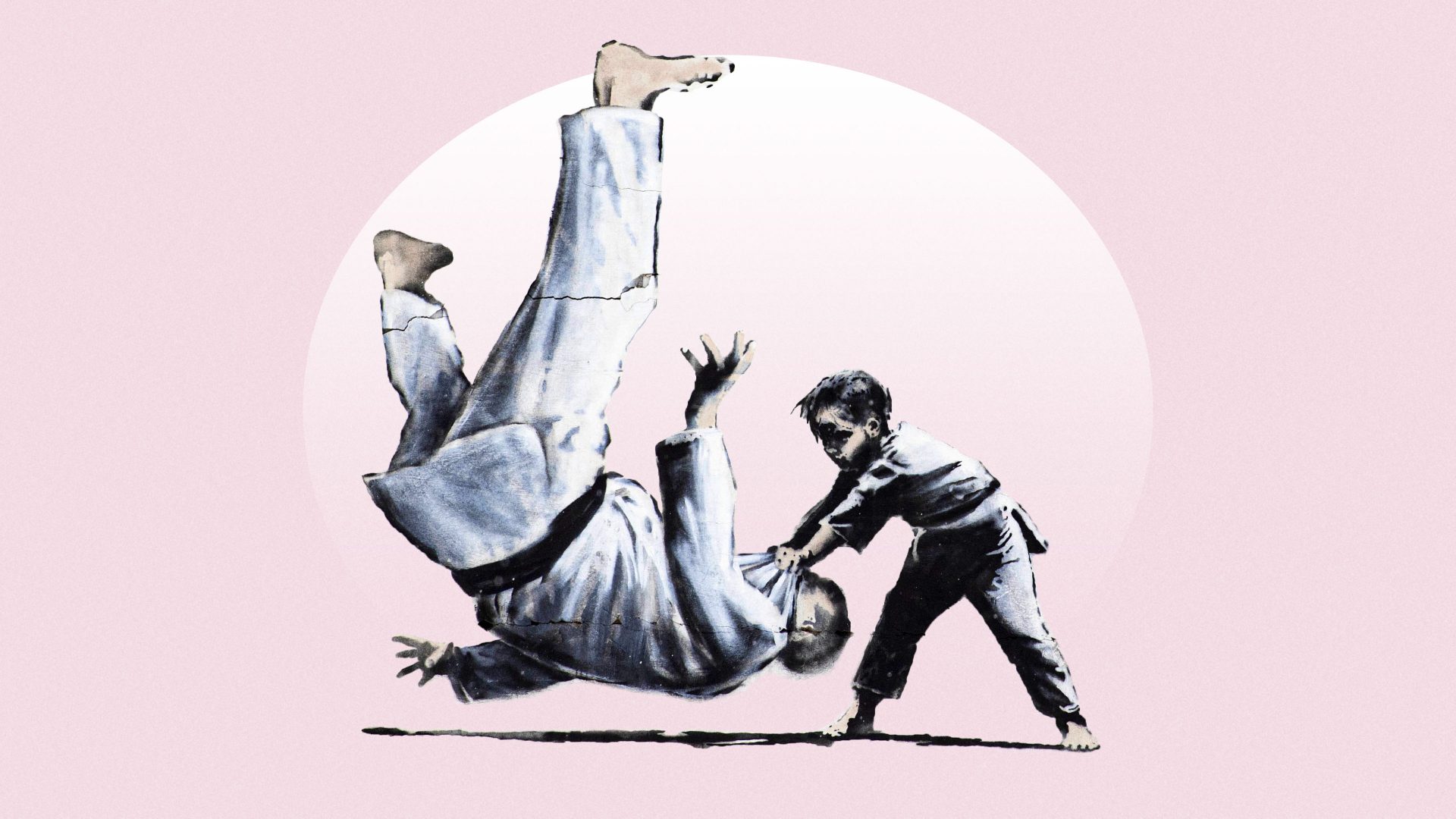Recently, outside the Parliament Hill Lido on Hampstead Heath, where I swim most mornings, I had two random encounters, the first with someone I know, the second with someone I had never met before, and have never seen since. They provided me with good examples of two campaigns – one that ended in victory, the other in defeat.
On my way to the lido that day I bumped into Lara Spirit, one of the young people whose views I have sought at various stages of writing. She lives near me, and near the lido, so I see her fairly regularly. On the day in question, there had been more bad news about the impact of Brexit, with enormous delays at Dover border controls dominating the news.
“It’s so depressing,” she said, “when you think how close we got.” By “we” she meant the People’s Vote campaign, on which she and I had worked together, trying to secure a referendum on the final Brexit deal. Ultimately we were unsuccessful – partly, we both felt, because we failed on questions of leadership, teamship and strategy, and partly because we didn’t have the winning mindset instilled from top to bottom.
As I came out after my swim, a woman who was arriving for hers, who I had not seen before, was walking towards me.
“Oh hello,” she said, cheerily. “How’s your son, Calum?”
I said he was fine, we chatted a little, and I asked how she knew him.
“I’m a friend of Bill,” she said, with a little wink and a smile as she headed to the changing rooms. “Give Calum my best.”
Some of you will know what “friend of Bill” means. For others, I will have to explain. To know about Bill, you have to know about Bob. Theirs is an almost fairy-tale story of the fusion of teamship and leadership, in which the local, very personal actions of a leader who never saw himself as such led to a global organisation that has helped and saved countless lives. Bill is all the proof you need that one person can change the world, and that the change he inspired can keep doing good in the world long after that person has left us.
If your life or anyone you know has been touched by alcoholism, there is only one Bob, just as there is only one Bill. They were the co-founders, in 1935, of Alcoholics Anonymous. A “friend of Bill” is someone who attends AA meetings. Like the woman at the lido. Like my son, Calum.
AA is a global organisation that came about when Bill, a broker and an alcoholic, who was on a business trip in Ohio, asked whether there was another alcoholic around whom he could talk to, and who could help him stick to his new resolve not to drink. He was put in touch with Bob, a surgeon who had struggled most of his adult life with alcoholism.
Despite the occasional relapse, that meeting yielded lasting sobriety for the two men. They decided to apply the same principle – recovering alcoholics supporting other recovering alcoholics – to help others. First a handful, then dozens, then hundreds, before, in 1939, they produced a book, Alcoholics Anonymous: The Story of How More Than One Hundred Men Have Recovered from Alcoholism. Today, there are more than 120,000 AA groups, with over two million active participants, achieving more together than they do alone and getting good out of bad. And all because one man – Bill – had the insight that he needed another alcoholic – Bob – to guide him through tricky moments. Friends of Bill. Brilliant. Bill changed the world.
Bill’s full name was William Griffith Wilson. He came from Vermont in the US, and he lived from 1895 to 1971. Bob was Robert Smith, born in Vermont in 1879, died in 1950, seven years before I was even born. Yet I think I can make the case that their philosophy, and the organisation to which their own alcoholism gave birth, has helped to get Calum’s life back on track, after a time when we honestly feared his alcoholism would kill him. He is now ten years sober, and an AA regular.
The story of Bill and Bob is a perfect example of how so-called “ordinary people” can do extraordinary things that change the world. Change is not just about politics. Such a simple idea started in such a simple way, and yet today there is barely a town or city that doesn’t host regular AA meetings. The creation of similar groups for gambling, drugs, sex and other addictions can also be seen as part of the Bill and Bob legacy. That is an incredible achievement. It’s hard not to see the guy who started the ball rolling not just as a real leader, but a real hero too.
And now, less happily, the People’s Vote campaign. Because, as ABBA remind us, the winner takes it all, it has already been airbrushed into history as a footnote. But it was quite a thing while it lasted. From a standing start, PV, as it became known, organised three of the four biggest marches London has ever seen and, having started with the support of about as many MPs as you could squeeze into a black cab, had won round close to 300 towards the end.
Interestingly, although the campaign reached across the generations, it was to a large extent driven by young people working for two particular groups, “For our Future’s Sake” and “Our Future, Our Choice”, FFS and OFOC (variations on the same joke). PV’s argument was that while the 2016 referendum had yielded a narrow win for those seeking to leave the EU, now that it was becoming clearer what Brexit meant in practice, and apparent that major constitutional change was involved, there should be a referendum to confirm that the country was happy with the eventual deal. It was not an easy message to communicate, in the face of Leave’s success, and the relentless accusations that we were seeking to defy “the will of the people”. But we were confident we could win the argument.
FFS and OFOC came to all the important meetings of the campaign and exerted real influence on decisions, strategically and tactically. They worked unbelievably hard for a fraction of the wages they could have commanded elsewhere. Lots worked for nothing, not least the thousands of volunteers that were engaged around the country. Though the media was always keener to take older, better-known faces, we were pushing these young people on screen too, and they did a great job. They also toured schools and university campuses to spread the message in a way that put the main political parties to shame. And they organised a mass lobby of Parliament that was so large and so effective that the serjeant-at-arms complained about them. Their sense of teamship was at times remarkable. It was a pleasure to be around them.
The PV campaign was one of the most energetic and energising campaigns I have ever worked on, including the May 1997 election (when some among the PV team were not even born).
But the fact is we lost.
I hate losing, and have spent a lot of time thinking about why we lost. In my opinion, our objective was a clear one. Our strategy – generating public pressure on MPs – was pretty good. However, I think it also contained two flaws. Firstly I suspect we became part of the polarisation problem we were trying to address. Secondly, our conviction that our cause was a just one led us to underestimate our opponents. That’s never a good mindset to have, and it’s one reason why the initial referendum was lost.
I have to hold up my hand here. So convinced was I back in 2016 that, when push came to shove, Remain would win, I largely kept out of the campaign. By the time David Cameron’s right-hand-man Craig Oliver asked me to help the pro-Remain politicians prepare for the big TV debates, it was too late: our chances were already slipping away. Chancellor George Osborne’s economic message was being overwhelmed by the emotional appeal of the Leave message and its characterisation of the Remain argument as “Project Fear”. Underestimating the opposition remained a strategic weakness three years later, though a lesser one than in 2016.
PV’s tactics, by contrast, were generally pretty strong: email and letter-writing campaigns to put pressure on MPs; marches and rallies; polling of public / political party members / unions / business sectors / regions and constituencies to show the changing mood; a diversity of voices; the mobilisation of young people to show that their generation was being betrayed; targeted ads and regional campaign groups. We were in good shape.
Ultimately, where I think the whole thing fell down was in the formal leadership within the campaign, and in the erratic leadership provided by the politicians outside it. The latter problem became particularly apparent just at the time when we had achieved momentum, and it proved catastrophic. The Liberal Democrats, at the time arguably the most anti-Brexit party, became seized by an absurd conviction they were on the verge of electoral triumph, so fell into the trap the Tories were laying to get the opposition parties to back an early election in December 2019, which they would make all about Brexit. The Scottish Nationalists, who had more realistic prospects of doing well in a general election, and using their success to step up their fight for another independence referendum, fell even more willingly into the trap. Labour had no option but to go along with it, and a Parliament in which momentum towards a second referendum on Brexit was growing, voted to end itself and give Johnson the gift he had been longing for.
In any case, by then, the campaign had largely imploded, thanks to a collapse in trust and respect between members of the board and the people running the campaign, a situation made worse by personality clashes and factionalism. And, of course, when leadership implodes in that way, teamship goes out of the window.
Added to that was the fact that, as I have already hinted, we became part of the problem we were trying to solve. The referendum had been a deeply polarising event, in horribly polarising, Trumpian, modern media times. These days, you will hear people saying it would have been better had we backed a softer Brexit rather than held out for a second referendum. It’s a valid criticism – in that such a deal would have been far better than the disastrous one we ended up with. But it’s valid only up to a point. If a soft Brexit was possible in 2016 or even 2017, by the time we launched People’s Vote, such a compromise was the least popular of all the options. Theresa May’s proposed deal would almost certainly have disintegrated before the ink of her signature had dried on it. Britain was a divided country, its politics was shrill and we were in a knife fight where waving a teaspoon around would have done no one much good.
The problem was that while such polarisation may have yielded us a support base of millions, it also hardened the opposition of the Leavers and Tories whose support we needed but which it became ever more vanishingly unlikely that we would secure. I endlessly debated on TV, radio and in public meetings, with prominent Leavers like Nigel Farage and Jacob Rees-Mogg. They could fire up their true believers. We could fire up ours. But reasonable debate that might change lots of minds one way or the other? Not so much.
The story of the People’s Vote campaign offers deep lessons for the way politics is conducted and explained. It also demonstrates that when polarisers polarise, the many people who do not live inside a political bubble and just want to get on with their lives, are likely to turn away from the whole political process. I discovered after the event that our social media team was putting filters on PV’s Facebook ads which excluded anyone who watched Top Gear, played bingo, didn’t have a degree, or liked Piers Morgan. FFS! It was a good way to get clicks, likes and shares from your own side – but the opposite of how you reach out to your opponents and persuade.
Indeed, the many people who followed and listened to Piers Morgan – a Remain voter who felt Brexit nonetheless had to “happen” (whatever that meant) because of the referendum result in 2016 – were exactly the kinds of people we should have been trying to win over.
The former journalist and Labour adviser Tom Baldwin, who I had persuaded to take on the formal role of strategy and communications director, put it like this: “We had to get noticed, to get on the pitch. But to get noticed, raise the funds, get people marching, writing to MPs and all the other things you need to shift opinion, we ended up not just preaching to the converted, but really pissing off the people we were trying to convert.” It was a criticism often levelled at us by Jeremy Corbyn and his team. Ironically, it was a mistake he made as well in his time as Labour leader. When you believe so much in the rightness of your cause that you lose sight of the people you need to win over, and the different methods and arguments that might be needed, you’re on a journey to nowhere.
Barack Obama put it very well. “This idea of purity, that you’re never compromised, always politically ‘woke’ and all that stuff. You should get over that – the world is messy, there are ambiguities. People who do good stuff have flaws. People you are fighting may love their kids.”
“If I tweet or hashtag that you didn’t do something right, or you used the wrong verb I can sit back and feel good about myself: ‘See how woke I was, I called you out.’ That’s not activism. That is not bringing about change. If all you are doing is casting stones, you are not going to get very far in changing things.”
Telling someone they have no right to a view is not a great opening gambit if you’re hoping to win them over. It’s why I don’t support the increasing tendency towards a cancel culture and the non-platforming of people with whose views a vocal group happens to disagree. Social media has done much to harm thoughtful public debate, and culture warriors continue to exploit grievances rather than engage with them, and yet I still believe that if you have the better argument, ultimately you give yourself the better chance of winning.
But, if you’re fighting a political campaign, you also need more than that. You need to be able to persuade above the noise. And it is in all of our interests, not least in order to defeat polarisation, populism and post-truth, that we actively seek to carve out space for persuasion and genuine argument, not just shouting and mobilisation. That is partly what “The Rest Is Politics” podcast tries to do. Obviously, mobilisation is important, but as a result of the assault on truth that damages so many important debates today, it is going to be hard to generate an honest conversation about the future without engaging in some kind of truth and reconciliation about the past. Whether it’s Brexit here, or guns and abortion in the US, the shouting drowns out the debates that we need to have.
Extracted from But What Can I Do?: Why Politics Has Gone So Wrong, and How You Can Help Fix It by Alastair Campbell, published by Penguin
10 reasons you should go into politics
1 It needs shaking up. A lot. Now.
2 It really matters. Politics, good and bad, touches all parts of our lives.
3 It is really interesting.
4 Sometimes, it is even good fun.
5 It doesn’t matter how old you are, what qualifications you have or haven’t got, or where you come from. There’s no fixed route into politics. You do it your way.
6 Politics doesn’t have to mean just government or Parliament.
7 It gives you the platform to turn your ideas into action.
8 It offers you the chance of really changing the world. I am not saying there aren’t other ways to do that, but that political context will always be there.
9 It is in constant flux, always changing. No two days are the same.
10 If you make it to the top, and do it well, you’re talked about and written about for ever, and your ideas and legacy outlive you.




